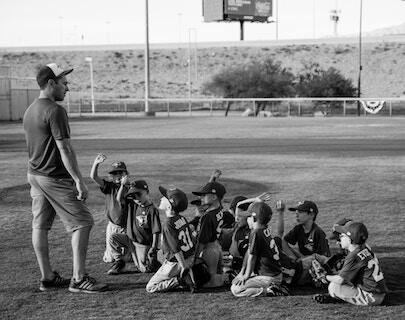
Accountability seems to be the word of choice in many of the business conversations I have.
“Why isn’t my team more accountable?”
“Lack of accountability is our biggest problem.”
“We get way too distracted by the ‘crisis d’jour…we never get anything done.”
But I’ve got some questions for you:
- “What are you accountable for as a leader and are YOU meeting those expectations?”
- “How do you hold yourself accountable?” Do you have an“accountability partner” or do you just “wing it”?
- “How clearly have YOU defined and communicated expectations to the employees in your company re: their accountabilities?”
- “How do you keep your employees FOCUSED?”
Conni Henshaw, a Divisional Vice President with Elmers knows that individual accountability starts at the top…with her!
“A leader’s job is to focus all of the brain power and experience that he or she has hired and get everyone aligned and on the same page. And a big part of my job is holding others accountable – including myself.”
“I need to make sure that I’m sharing expectations first – at least once a month. I need to make lists and follow up with people. I probably learned a lot of that from raising two kids on my own but now I find it extremely freeing to be accountable to myself as well as my team. It’s not rocket science but it works.”
Other accountability “best practices” that some of the leaders who I know use?
CTN Solutions, an IT company in Blue Bell, PA uses a condensed One Page Plan that has key Strategy components like Core Values, Brand Promise and Purpose on one column and the 90 Day Quarterly Plan Goals and Rocks on the other to “keep it simple and keep people focused” as Drew Morrisroe, the CEO likes to say.
Keith Baldwin, Managing Partner of Spike’s Trophies and Sign Solutions uses a weekly newsletter format that everyone gets – and everyone reads – to keep people up-to-date on key business initiatives AND to share successes and customer feedback. He also actively practices an old Tom Peters’ favorite…MBWA’ing (Managing By Walking Around).
“It helps me stay in touch with people, reinforce expectations and offer positive reinforcement,” says Keith.
At a staffing company that we work with in NYC, the VP of Ops and President are diligent about holding daily huddles with their staff. Every Monday the big question for each of their employees is “What are your top 2 or 3 priorities?” It’s not only helping with accountability and focus, but they’re also blowing away their revenue numbers this year.
Liz Jaworkski at Ron Jaworkski Golf in Southern NJ has a similar practice with her Key Employees, asking them to give her their top 5 Priorities every week.
“It’s been one of the best “Habits” disciplines that we’ve adopted for helping people get clear on what to do – and what not to do.”
There’s a dozen other examples I could share but at this point I’m wondering – What are you doing to hold yourself – and your team accountable? We would love to hear some of your “best practices”!
Tags: Business advice for the mid-market, Business Coaching, Enlightened Executives, Executive Coaching, Executive Education for Small Business, Executive Roundtables, Generating Revenues, Leadership Development in New Jersey, Leadership Development in Philadelphia, Overcoming small business challenges, Small Business help, Strategic planning for small business, succeeding in a down economy
